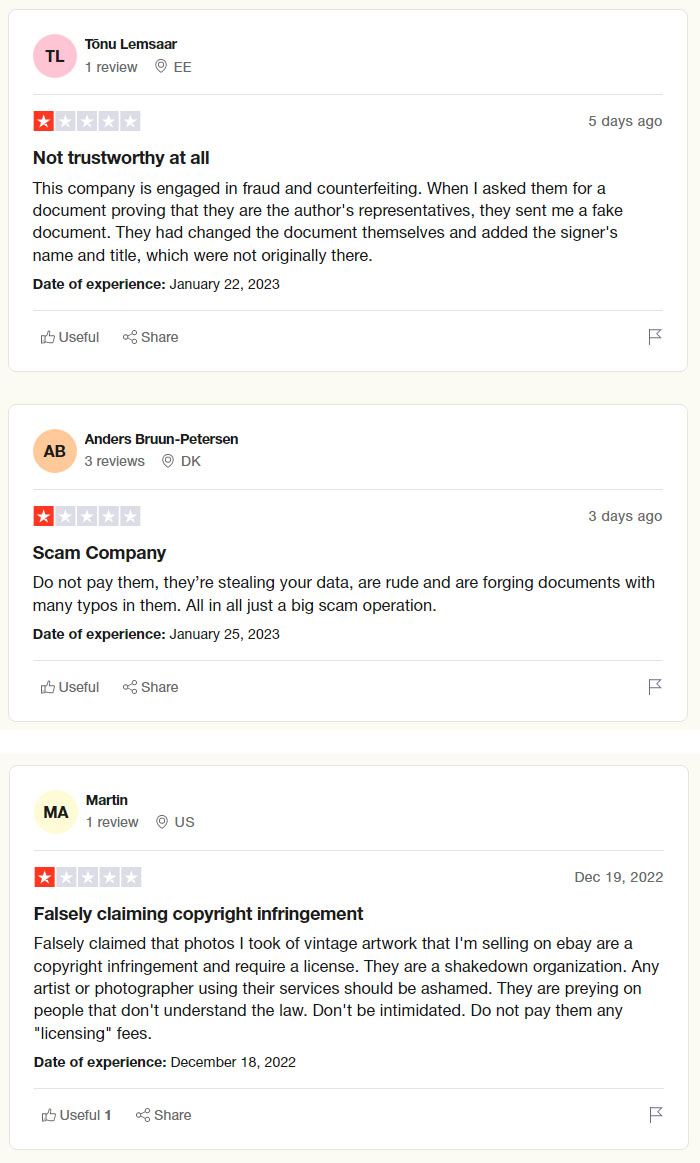In the last years, fraudulent Copyright-businesses like when Copyright Agent target smaller media outlets and individuals, sometimes even trying to extort money for photos taken by the photographers themselves.
Copyright Agent
One of the fraudulent companies is Copyright Agent based in Denmark. Other fraudulent companies in this line of “work” has a modus operandi of seeking out an image that they claim is protected by copyright and then they threaten the person or company into paying.
However in further research into the phenomenon, it is revealed that they don´t even have a case for their claims, often the pictures do not even nearly qualify as being protected by copyright. In Sweden for example, an artistic piece of work is going to be held to a certain standard if it is going to fall under copyright law.
For example, a cellphone photo of a dog in the street is not considered protected by copyright law. However, if you arrange a photo and set it up or take a photo of yourself, then those pictures can often be protected both by copyright and legislature that concerns one’s privacy.
This is something that these companies willingly ignore.
Copytrack
Another company is called Copytrack and is based in Germany. Looking at both of the company’s reviews on Trustpilot and Google Reviews it is revealed that both of those companies have a really bad reputation for being very shady:

Copyright trolling
One online editor wrote to NewsVoice:
”I am the editor-in-chief of a small publication in The Netherlands. I came across your article about Copyright Agent as I basically received exactly the email you mentioned, claiming compensation for two pictures that were used on my portal but are available on Wikipedia (respectively CC 4.0 and public domain).
So how do you counter copyright trolls?
First of all, exposure is very good when dealing with all kinds of scams. Then you should, if you have the resources and money, also file charges against them.
The European Union has the advantage of having a system for suing people and companies that are engaged in criminal behavior. Even if it is a small sum, you should never pay! Because if you do then you are feeding the monster.
These companies don´t need to gain a high percentage of “wins” in order to gain a lot of money, even if they manage to fool only 10%, they are still gaining a lot of revenue because they are extremely active and do not stop at trying to claim everything, even if it is images that in their own nature are free from copyright for example, pictures from CC-commons or free stock photos.
So In short: Never pay, take legal action if you have the financial means last but not least: report that they are scam companies on internet-based review platforms so that in the end, no one will take them or their claims seriously.
By Christian Pavón, European law jurisprudence

 Christian Pavón (
Christian Pavón (

